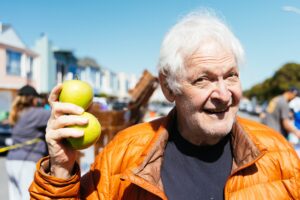 Once a week, a familiar face stops by a neighborhood food pantry in the Richmond district for an afternoon volunteer shift: coordinating the check-in process, breaking down cardboard, and helping share groceries with hundreds of neighbors each week.
Once a week, a familiar face stops by a neighborhood food pantry in the Richmond district for an afternoon volunteer shift: coordinating the check-in process, breaking down cardboard, and helping share groceries with hundreds of neighbors each week.
Meet Gary. He’s a retired special education teacher and a regular pantry volunteer: “I have had cordial interactions almost universally at the pantry, and I find being outside positively reinforcing,” he shared.
But socializing and fresh air aren’t the only reasons he chose to volunteer with the Food Bank.
“My rejoinder is that during COVID, I didn’t leave the house. I was at high risk, and you fed me. So, I see this as my responsibility to reciprocate,” Gary told us.
High Risk and Housebound
Gary, a long-time San Francisco resident, described his feelings in the early part of the pandemic as a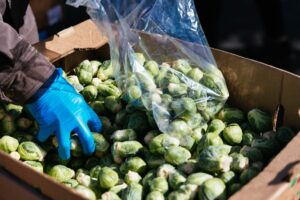 sense that “the sky was falling.”
sense that “the sky was falling.”
“I’m a hypochondriac. I was in a high-risk group, so I literally did not leave my house for a long time,” he shared. As people plundered grocery store shelves for food and toilet paper, Gary said there was one thing that helped put food on the table and gave him some peace of mind.
“The Food Bank really massaged my anxiety about the contagion. It was pivotal. I did have people who were kind enough to go shopping for me too, but my home-delivered groceries were very helpful.”
HDG to Farmer’s Market-Style
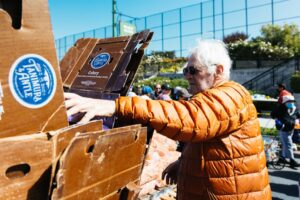 Gary lives on his pension income – so even before record inflation hit, his pre-pandemic grocery routine involved walking to a variety of stores and markets to get the best deals and buy food in bulk. The health risks of the pandemic made this routine impossible for him, but home-delivered Food Bank groceries helped Gary offset the pressure on his budget and stay nourished with fresh vegetables.
Gary lives on his pension income – so even before record inflation hit, his pre-pandemic grocery routine involved walking to a variety of stores and markets to get the best deals and buy food in bulk. The health risks of the pandemic made this routine impossible for him, but home-delivered Food Bank groceries helped Gary offset the pressure on his budget and stay nourished with fresh vegetables.
“I used the produce a lot in salads and in pasta. I would sauté vegetables, add some condiments, spice it up a bit, and have a lot of pasta,” he recounted. “It was a preponderance of produce!”
When he felt safe to do so, Gary began attending the weekly in-person food pantry near his home. Now with both experiences under his belt, he’s an enthusiastic advocate for the farmer’s market-style selection at his neighborhood food pantry, which helps avoid what he calls “lentil-bean syndrome.”
“You would get lentil beans in every [home] delivery, and I still have them. I really like lentils, but it was a lot,” he shared. “I think that this format is far better, because people can decline [what they don’t want], and it’s just far more efficient.”
Keeping Each Other Healthy
Before Gary left to begin his volunteer shift, he reflected on the past four years. Thanks to his own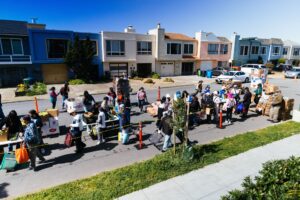 network of support – friends, neighbors and groceries from the Food Bank – Gary was able to stay healthy and safe during the height of the pandemic. But he knows not everyone had that good fortune.
network of support – friends, neighbors and groceries from the Food Bank – Gary was able to stay healthy and safe during the height of the pandemic. But he knows not everyone had that good fortune.
“A real concern of mine is community healthcare,” he shared. “Had we a more empathetic government, a lot of people would be alive right now.”
Every week, we see neighbors facing difficult choices between paying for food or healthcare. That’s why the Food Bank is tenacious in pushing for public policy that addresses the root causes of hunger, while also addressing the immediate need for food in our community.
Forming a Support System
As for Gary’s next steps? With the Food Bank’s Pop-up Pantries closing in June 2025 due to the end of pandemic-era funding, he’s already looking for new ways to volunteer and continue to be part of a support system for others.
“I would be happy to work with youth. I would be happy to work with older people. I would be happy to walk people’s dogs if I can,” he laughed. “As human beings, we are empathetic. And when you [volunteer], you feel better. We all want to feel better.”



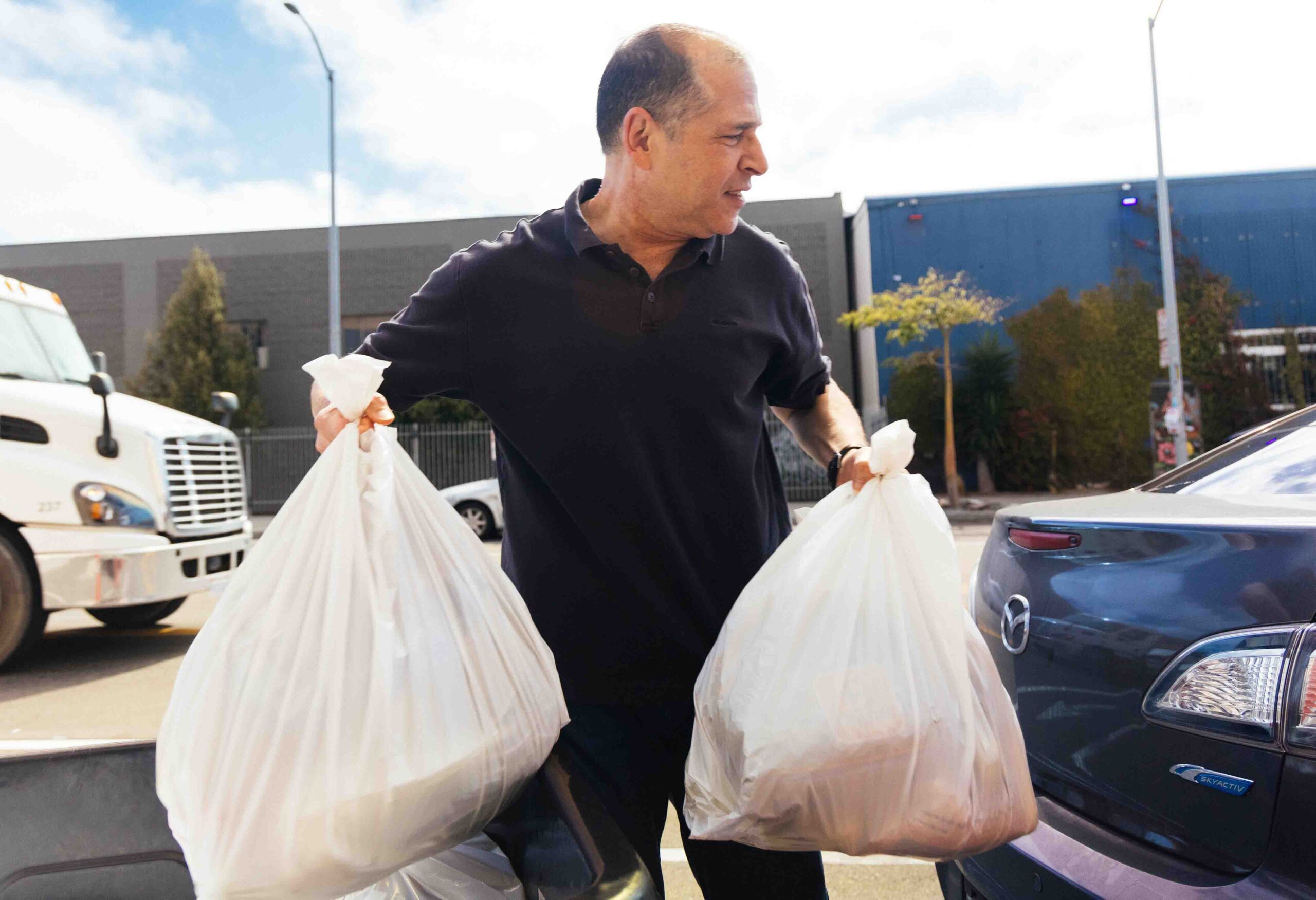
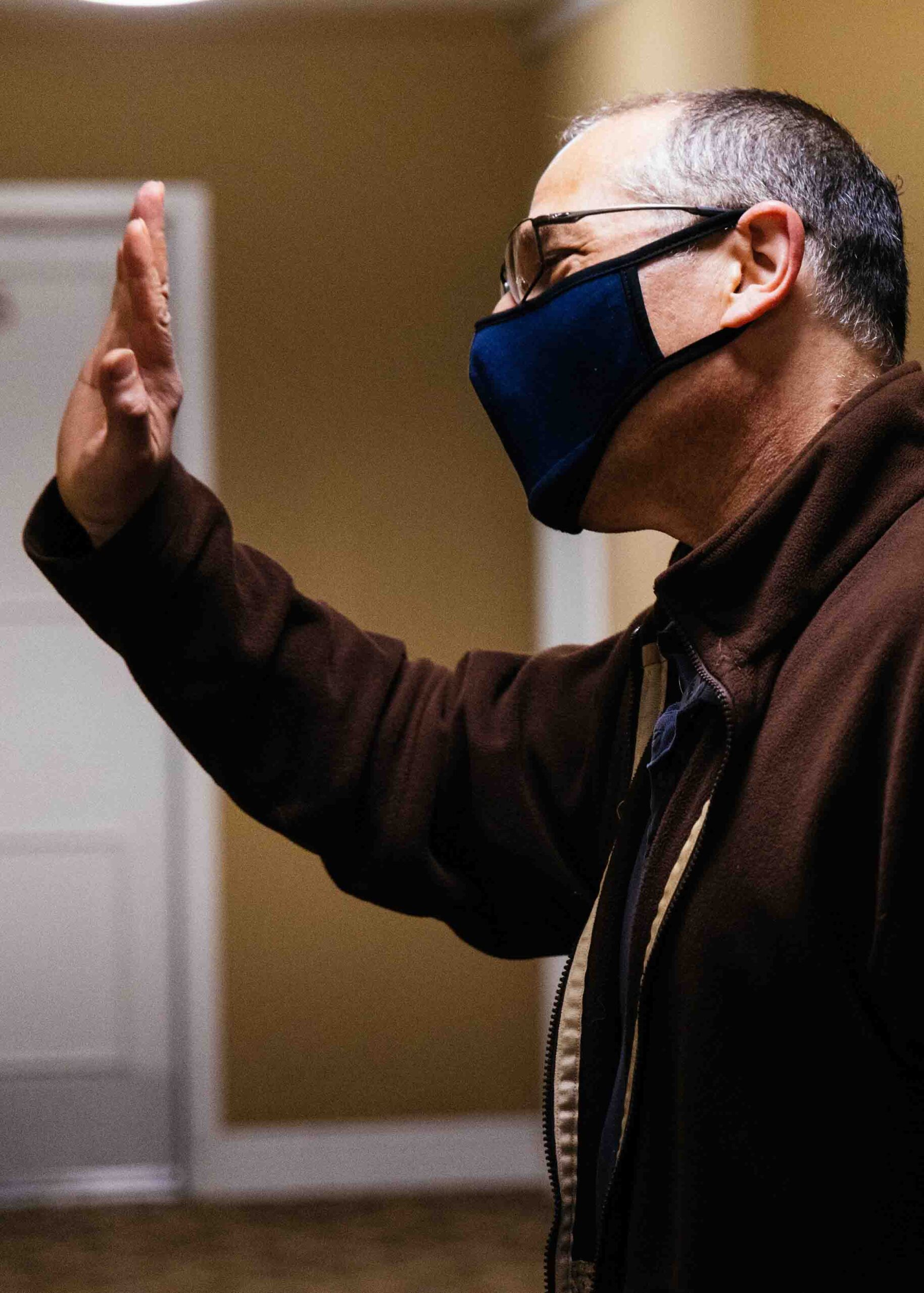
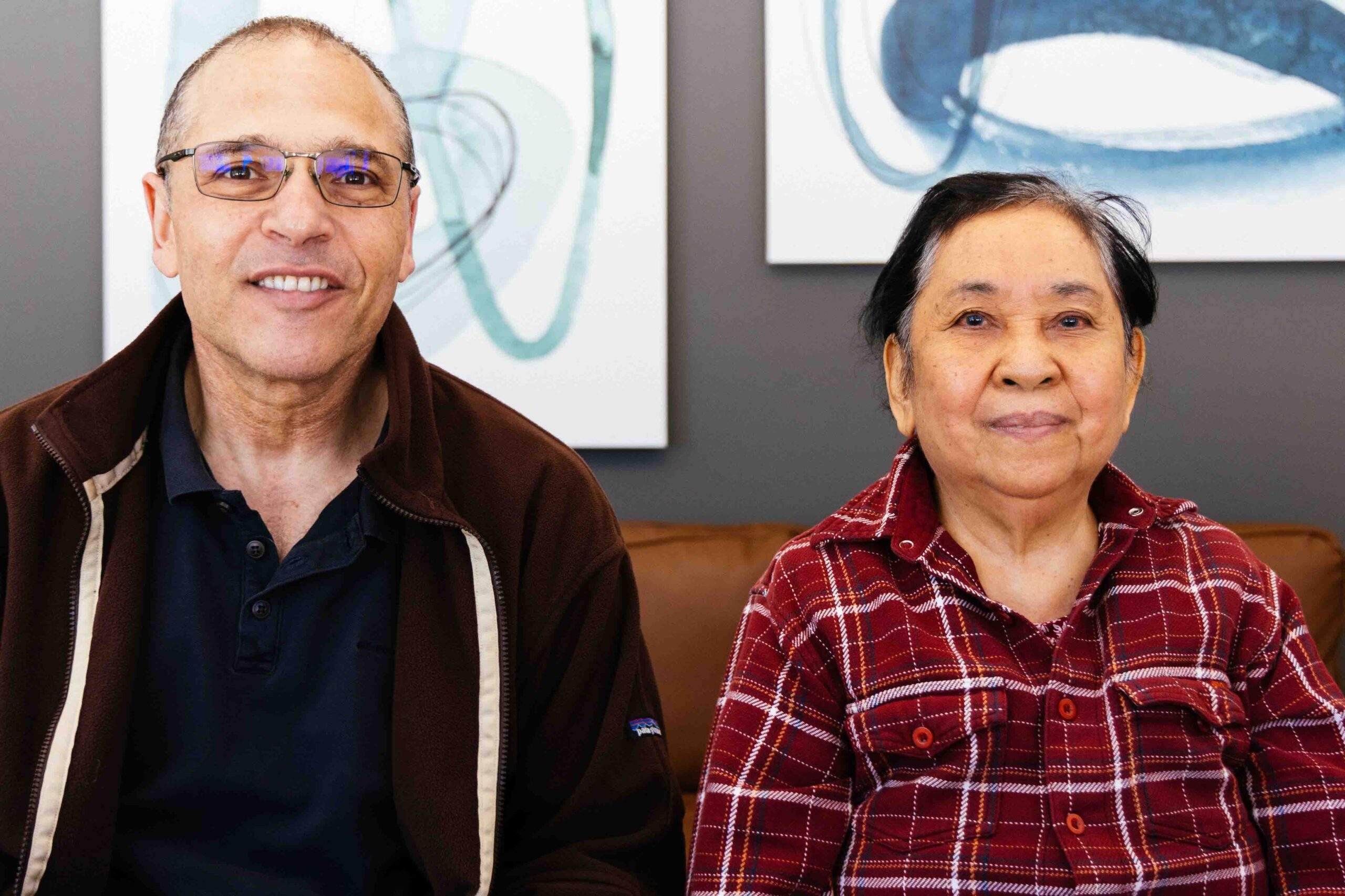
Share